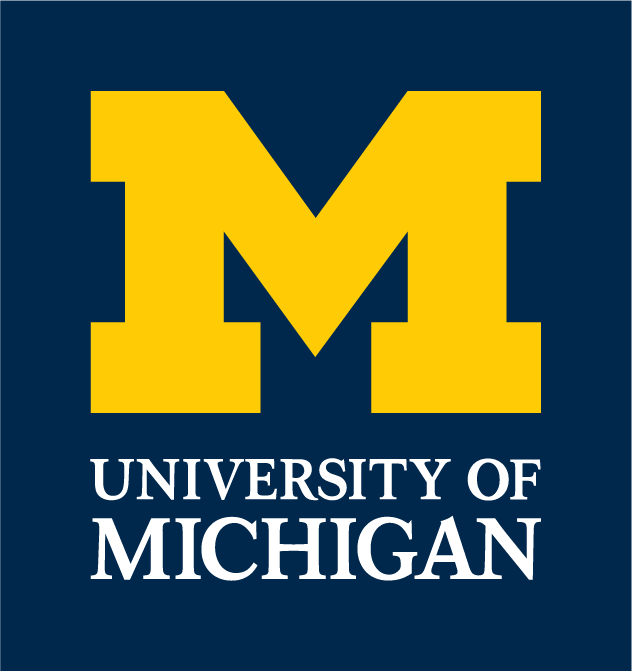I'm looking for information about
Can't find what you're looking for? You may need to login to see more documents
High-level program plans that outline the general goals and acceptable procedures for a department.
This Copy Was Generated On: August 14, 2025
Policy on the Classification and Expectations of Personnel Involved with Animal Activities
Institutional Animal Care & Use Committee
| Approval Date:
May 7, 2024 12:00 am
To outline the basic expectations for each classification of personnel permitted to work with animals.
Applicability
This policy is applicable to all animal activities conducted under the auspices of the University of Michigan (U-M) and applies to all locations under the purview of the U-M IACUC.
Glossary Definitions
Observers
Observers are individuals who may be in close proximity to animals during a research or learning activity but must not handle the animals or perform any procedures.
Short-Term Personnel
Short-Term Personnel are defined as individuals participating in a research or learning activity for 30 or fewer consecutive days (1 month) or 15 or fewer total days over a six-month period. The intent of the Short-Term Personnel Role is to:
- Permit an educational event, such as a visiting scientist sharing procedural knowledge or a summer student doing a rotation.
- Allow for training of personnel approved on one U-M IACUC approved protocol to receive training on procedures described on another U-M IACUC approved protocol. This may occur if the individuals providing the training are:
- Approved as personnel on the U-M IACUC protocol that describes the procedure(s) being performed,
- Proficient at the procedure(s) being performed, and
- Providing constant supervision of the individual(s) receiving the training.
The intent of the Short-Term Personnel role is NOT to fill employment gaps.
Long-Term Personnel
Long-Term Personnel are defined as individuals participating in a research or learning activity for more than 30 consecutive days (1 month) or more than 15 total days over a six-month period.
U-M Affiliated Instructors/Demonstrators
U-M Affiliated Instructors/Demonstrators are individuals whose primary animal activity is the leading of teaching activities or demonstration of animals or animal procedures.
Minor
Any person under the age of 18.
Policy
The Principal Investigator (PI) is responsible for ensuring individuals working with animals under his/her advisement are appropriately trained, apprised of any hazards or risks (e.g., occupational hazards and safety concerns associated with animal care facilities), and adhere to applicable regulatory requirements as well as U-M IACUC approved policies. All Individuals must adhere to the IACUC approved animal use protocol in addition to the requirements below.
Personnel Requirements When Working With Animals
| Personnel Classification | Listed on an IACUC Approved Animal Use Protocol | Enrollment in the Animal Handler Medical Surveillance Program | Mandatory Training Requirements | Limitations When Working with Animals |
|---|---|---|---|---|
| Observers | Not required | Not required a | Not required | Must be escorted at all times by:
Must not:
|
| Short-Term Personnel | Not required | Not required a | Not required | Must work under the supervision of:
|
| Long-Term Personnel | Required | Required | Required | No additional limitations |
| U-M Affiliated Instructors / Demonstrators | Required | Required | Required | No additional limitations |
| Minors b | Must obtain approval prior to working with animals in addition to meeting all requirements outlined according to the length of involvement with animals (e.g., observer, long term).
Contact a QA for guidance on obtaining approval. |
Must work under the supervision of:
Must not:
|
||
Animal Handler Medical Surveillance Program
Individuals required to enroll in the Animal Handler Medical Surveillance Program, administered by Occupational Health Services (OHS), must complete an initial Animal Handler Medical Surveillance Questionnaire (MSQ) upon enrollment in the eResearch Animal Management (eRAM) system. In addition, these individuals are required to update their MSQ if they have concerns with their work environment or changes to the following occur:
- Medical status;
- Species exposed to; or
- Level of animal contact
High-risk individuals must complete a new questionnaire annually and may require further mandatory involvement (e.g., OHS clinic visit, species-specific protections) in the program. Reminders to complete or update the MSQ will occur when a high-risk species (i.e., non-human primate, sheep) is added to an existing IACUC approved animal use protocol and, at a minimum, yearly for all enrollees.
Mandatory Training Requirements
Mandatory training courses are assigned to individual personnel according to the species and procedures listed under the individual’s animal handling details. To fulfill training requirements, individuals must:
- Complete web-based training assignments prior to approval on an IACUC approved animal use protocol.
- Complete workshop training within 60 days of assignment notification, during which time individuals may work with animals under the direct supervision of the PI or an individual that is listed on the IACUC approved animal use protocol and proficient on all applicable procedures.
- Retake online courses every 3-5 years.
Failure to complete these requirements may result in removal from the IACUC approved animal use protocol or removal of permissions to work with specific species or to perform specific techniques.
Compliance
The provisions of this policy are under the direction and oversight of the U-M’s IACUC. The IACUC will, if necessary, suspend research or implement sanctions if policy infractions should occur.
Footnotes
- Individuals must have access to the Occupational Hazards & Safety Concerns Associated with Animal Care Facilities brochure and can find basic information regarding the use of animals in research and instruction at U-M in A Guide for Students & Short-Term Personnel Working Around Animals.
- Minors must comply with the U-M Standard Practice Guide (SPG) for Children on Campus and the EHS requirements for minors in research.
Questions?
For questions, additional detail, or to request changes to this policy, please contact the Office of the Assistant Vice President for Research – Director of the Animal Care & Use Office at [email protected] or (734) 763-8028.

